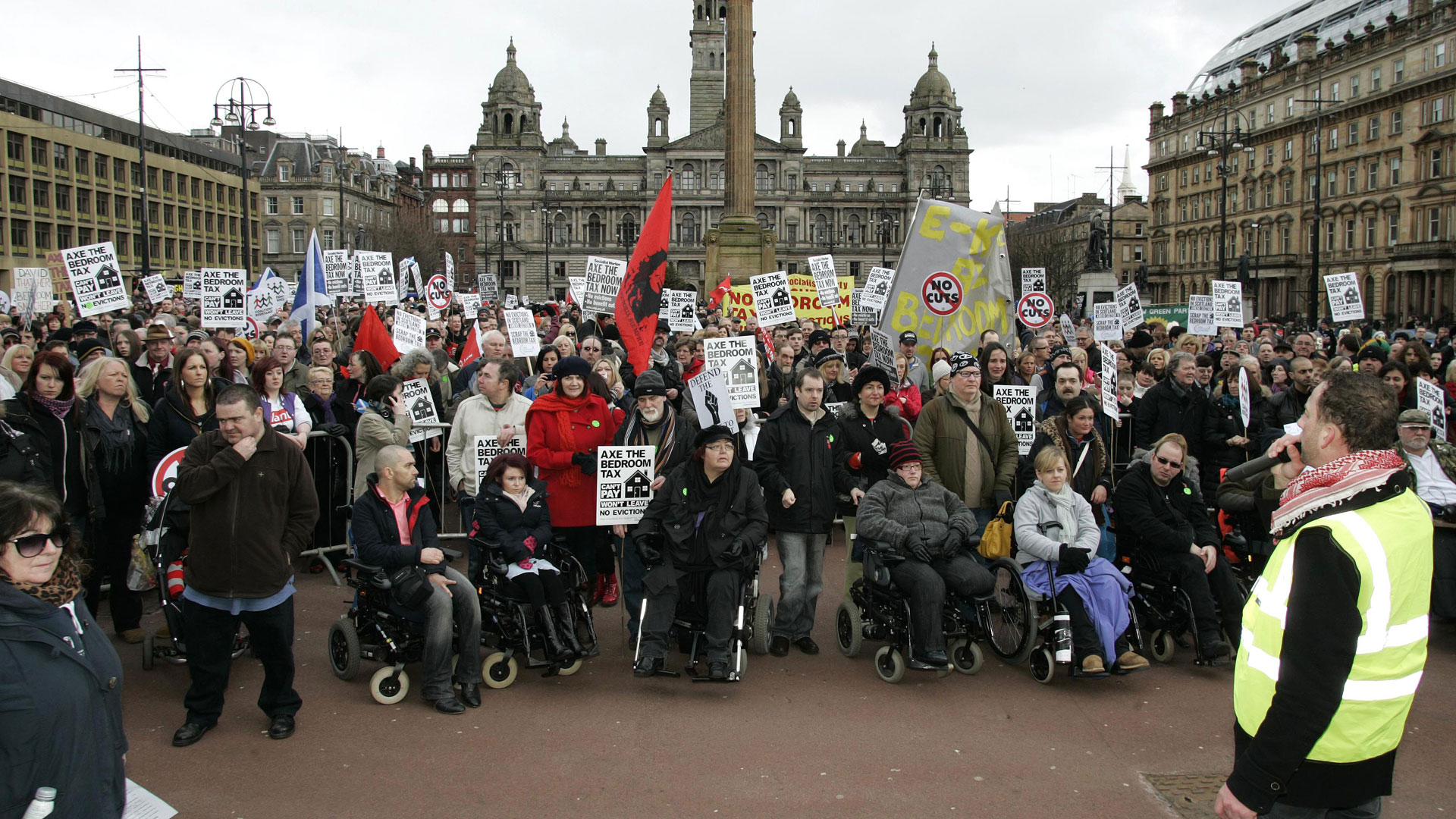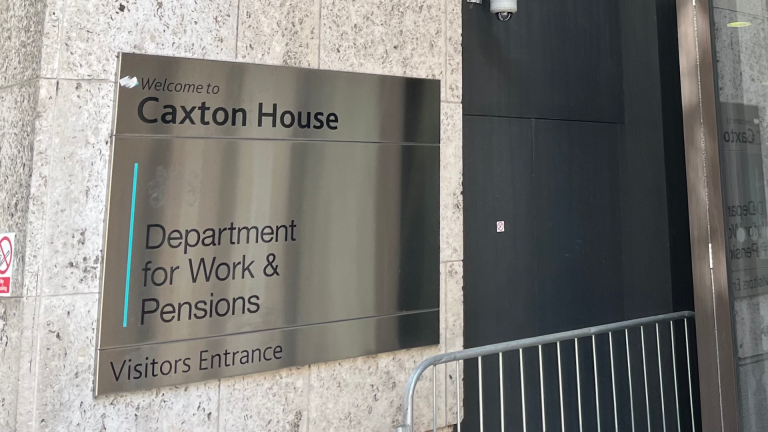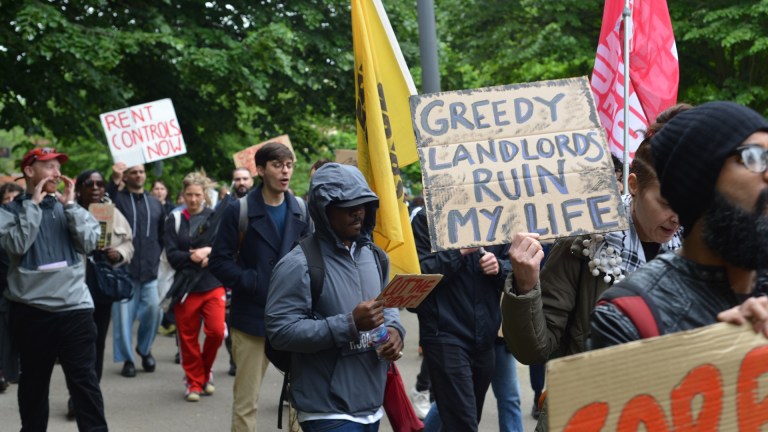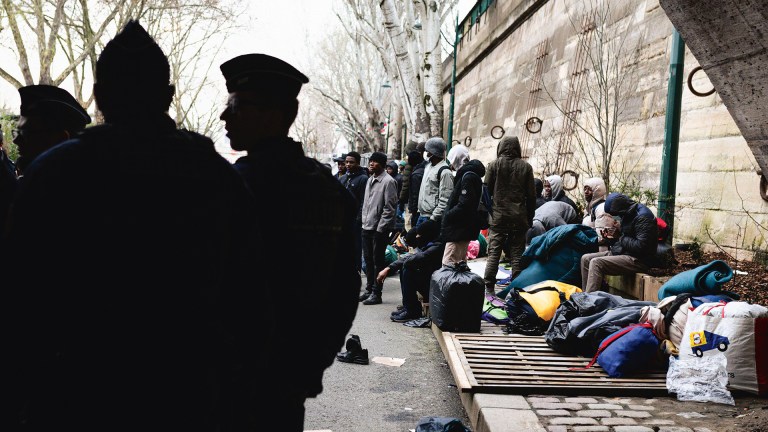“There just aren’t one-bedroom places available. It would cost more to move me and do all the adaptation to another house I need than it would to leave me be and waive this.”
Government ministers vainly refer to “the removal of the spare-room subsidy” but the ubiquity of the term ‘bedroom tax’ – and its echoes of other strange, arbitrary measures such as the poll tax and window tax – suggests they have lost the argument.
People understand it’s about clawing back money. Since housing tenants with spare rooms are to be docked an average of £14 per week in housing benefit, the government estimates it will save £490m a year.
What happens to disabled people who simply can’t meet the shortfall? The government has earmarked £25m a year in discretionary housing payments (essentially an emergency fund) for disabled people living in adapted homes, and a further £5m for foster carers.
I see the Prime Minister on the telly saying these changes won’t affect disabled people. Well, sorry, we are a disabled family and we just can’t afford this
Yet dividing the £25m fund among the 440,000 disabled people losing out leaves little over £1 a week for each person. “The [DHP] budget is just not big enough,” says Duncan Shrubsole, director of policy at homeless charity Crisis. “It’s not a long-term solution for very many people, and the government is being disingenuous in claiming it is.”
The bedroom tax means the very real prospect of people losing their homes. Deb Elthalion, a 48-year-old mum from London’s West Norwood district, was out campaigning in Trafalgar Square last weekend. One of her three daughters has Down’s syndrome and autism.
As a result of the bedroom tax, Deb has been told to pay the shortfall of just over £80 a month or move somewhere with one bedroom fewer, forcing her 15-year-old disabled daughter to share a room with one of her other children.
“If we stay where we are that amount of money is really going to hurt us, and at the moment I’m not really sure how we’ll manage,” says Deb. “I see the Prime Minister on the telly saying these changes won’t affect disabled people. Well, sorry, we are a disabled family and we just can’t afford this.
“It’s so, so wrong. I’m fighting to keep our home now, a place we love, a place where I gave birth to one of my daughters. I think everyone deserves a home.”
Some disabled people are being hit by as many as six cuts to their income at once. April’s multiple whammy includes a 10 per cent cut to council tax benefit, and 500,000 fewer disabled people eligible for mobility payments as disability living allowance (DLA) is replaced with the new personal independence payment (PIP).
But most significant of all is likely to be the overall benefit cap – imposed at £500 per week, or £350 for single people – introduced by selected councils next week and rolled out nationally later in the year (56,000 households will be hit, with an average weekly loss of £93).
What will councils and housing associations do when their poorest tenants’ money dries up? Could people with very obvious physical disabilities really face eviction and be made homeless? Could Iain Duncan Smith’s attempt to cut welfare spending push a whole new wave of people on to the streets?
“There will be disabled people living in adapted properties who won’t be able to afford to pay the rent,” says Crisis’ Duncan Shrubsole. “Councils and housing associations may be able to forbear for a while but they can’t afford to do it indefinitely, so will have to look to evict people. Unless people can then find somewhere in the private rented sector on reduced LHA and benefits, there will literally be nowhere for them to go.
“They’ll be at the council declaring themselves homeless, which will then cost even more for the council. If they are statutory homeless, councils will have to provide temporary accommodation in B&Bs, or lease from a private landlord, or put people up in old people’s homes.”
Helen Fisher, financial capability trainer at Liverpool Central Citizens Advice Bureau, says many of her clients can’t see how they’re going to get through the year in their current home. “Whether you’re disabled or not, if you can’t pay the rent, ultimately you’re going to get evicted,” she says.
“And if disabled people are presenting as homeless, councils may have to put them in residential care to be looked after, which then costs a fortune. It doesn’t make any sense. We’re supposed to be helping people live independent lives and work where they can. But they’re actually making people more helpless than they already are.”
Some people argue the country simply can’t afford to be as benefit generous as it used to be. Yet Iain Duncan Smith continues to make his case in terms of fairness, insisting the bedroom tax and other measures affecting the poor and disabled are about more than cutting back welfare spending, and are all part of establishing a principle “that a life on benefits must not be more attractive than working”.
Knowing the enormous practical difficulties it will cause, many councils have declared their opposition, and a handful have even declared they won’t evict tenants who fall into arrears as a result of the bedroom tax.
If you scratch beneath the surface of this rhetoric, however, the reality is much less encouraging. For a lot of people, the bedroom tax will be just one financial woe among many leading to rent arrears. How will local authorities or housing associations identify tenants in penury solely as a result of the bedroom tax?
Dundee City Council, for example, was among the first local authorities in Scotland to heed the SNP’s call for council bosses to assure tenants they would not be evicted. Yet Dundee’s housing convener was then forced to admit “cover against eviction disappears” if a tenant in arrears declines alternative accommodation.
There will be mass evictions as a result of the overall benefit cap
In Nottingham, the Labour council has decided its high-rise flats, even those with two bedrooms, will be classified as one-bedroom in preparation for the bedroom tax. Many councils and housing associations may try their best to adapt and assist as far as they are able but they are helpless to avoid the misery ensuing when people go flat broke.
Joe Halewood, a housing consultant who works with social landlords and has campaigned against many of the government’s cuts, says it’s “nonsense” for councils to claim they won’t evict. He believes that judicial appeals will prevent too many social housing evictions for at least a year but the overall benefit cap will soon lead to huge numbers being turfed out by private landlords.
“There will be mass evictions as a result of the overall benefit cap – it will cause homelessness,” Halewood says. “I reckon it could end up adding 100,000 people to homelessness figures. And where do they all go when they show up at the council? Into B&Bs? Will big families be spilt up? The housing just isn’t there for them.
“The whole thing is going to cause pandemonium in the housing system. It’s going to cause meltdown, and the best thing for the government to do is rethink this and get rid of these measures.”
Back in 2010, when the government outlined some of the ways it would cut support for some of the most vulnerable, satirist Armando Iannucci remarked: “It’s about time [the] bedbound… were taken down a peg or two.”
It appears we’re about to find out what happens when you take away the last rungs of the ladder.









